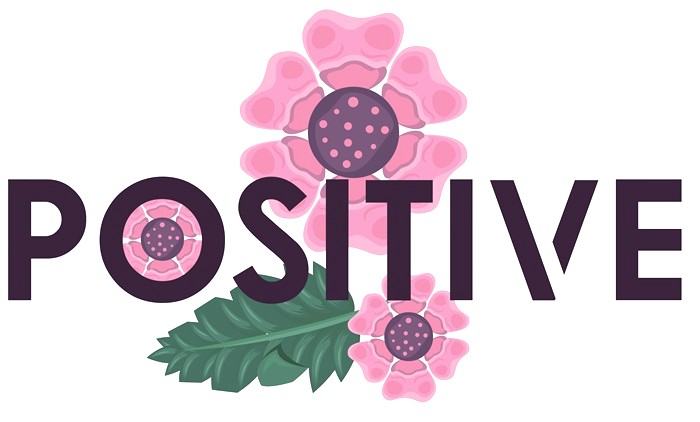STAY POSITIVE
Staying positive is a powerful way to navigate life. It can turn challenges into opportunities and bring light into even the darkest days. Remember, even small acts of gratitude or a kind word to yourself or others can make a big difference. You’ve got this!
Staying positive is all about cultivating a mindset that helps you navigate life’s ups and downs with resilience and hope. Here are some detailed strategies that can help you embrace positivity in your life:

1. Shift Your Perspective
- Positivity starts in the mind. Instead of focusing on what’s wrong, try to focus on what’s right or what you can learn from a situation. Challenges can often be disguised opportunities for growth.
- Practice reframing negative thoughts. For example, instead of saying, “This is so hard,” try saying, “This is a chance to learn something new.”
2. Practice Gratitude
- Make it a habit to appreciate the good things in your life, no matter how small. Start a gratitude journal and jot down a few things you’re thankful for every day.
- Gratitude helps shift your focus from what you lack to what you have, boosting your mood and overall outlook on life.
3. Surround Yourself with Positivity
- The people you interact with can influence your attitude. Spend time with uplifting, supportive individuals who encourage you to stay positive.
- Curate your environment—decorate your space with things that make you happy, such as plants, photos, or inspirational quotes.
4. Engage in Positive Actions
- Help others. Acts of kindness, whether big or small, can boost your positivity and make you feel connected to the world.
- Take care of your physical and mental well-being. Exercise, eat healthily, meditate, and get enough sleep to maintain a positive mindset.
5. Celebrate Progress, Not Perfection
- Nobody is perfect, and that’s okay. Acknowledge and celebrate your achievements, no matter how small they may seem.
- Break larger goals into smaller, more manageable steps. Each step forward is a reason to feel good.
6. Embrace Challenges as Part of the Journey
- Life will inevitably throw curveballs. Instead of fearing challenges, see them as opportunities to strengthen your resilience and grow.
- Remind yourself that setbacks are temporary and can often lead to breakthroughs.
7. Feed Your Mind with Positivity
- Consume uplifting content, whether it’s books, podcasts, music, or videos. Inspiration can be contagious!
- Limit exposure to negativity, such as excessive bad news or toxic social media interactions.
8. Celebrate the Present Moment
- Often, we’re so focused on the past or the future that we forget to appreciate the here and now. Mindfulness practices can help you stay grounded and find joy in the present.
- Take a deep breath, observe your surroundings, and allow yourself to savor small, beautiful moments.
9. Speak Positively to Yourself
- Your inner dialogue shapes your reality. Be your own cheerleader by practicing self-compassion and replacing harsh self-criticism with kind, encouraging words.
- Affirmations can help. For example, tell yourself: “I am capable. I am resilient. I am worthy of happiness.”
Staying positive doesn’t mean ignoring the difficulties of life—it means choosing to face them with hope, strength, and optimism.
Let’s delve deeper into the concept of positivity. It’s not just a fleeting feeling—it’s a lifestyle choice that can profoundly impact your mental, emotional, and even physical well-being. Here’s a more detailed breakdown:
The Science of Positivity
Positivity isn’t just a “feel-good” concept—it’s backed by science. Studies in psychology show that maintaining an optimistic outlook can:
- Reduce Stress: Positive thinking lowers levels of cortisol, the body’s stress hormone.
- Boost Immunity: A healthy mind can strengthen your immune response.
- Enhance Resilience: Positivity equips you to bounce back from setbacks faster and with less emotional toll.
- Improve Relationships: A positive mindset fosters better communication and stronger connections with others.
Key Pillars of Positivity
- Mindset
- Adopting a growth mindset is key to staying positive. This means viewing challenges as opportunities to grow, rather than as threats.
- Practice visualization: Imagine positive outcomes for your goals. This trains your brain to focus on possibilities rather than obstacles.
- Emotional Regulation
- Learn to identify and manage your emotions. Meditation, deep breathing, and mindfulness can help you stay balanced during stressful situations.
- Allow yourself to feel negative emotions when they arise, but don’t let them take root. Acknowledge, process, and then let them go.
- Optimistic Behavior
- Set realistic, attainable goals. Achieving even small milestones provides a sense of accomplishment and reinforces positivity.
- Avoid procrastination. Taking action (even small steps) gives you a sense of control, which fuels optimism.
- Self-Compassion
- Treat yourself with kindness and forgiveness. Harsh self-criticism leads to a negative spiral, but self-compassion nurtures positivity and self-worth.
- Remind yourself of your strengths and past achievements.
Incorporating Positivity into Your Daily Routine
Here’s a detailed guide to making positivity a habit:
- Morning Boost:
- Start your day with affirmations, like “Today, I choose happiness and courage.” Repeating positive statements sets the tone for the day.
- Spend five minutes listing three things you’re grateful for—this rewires your brain to notice the good.
- Midday Positivity:
- Take mindful breaks. Step away from work to breathe deeply, stretch, or enjoy a walk in nature.
- Reframe any midday challenges. For example, instead of “This task is overwhelming,” try “This is an opportunity to prove my abilities.”
- Evening Wind-Down:
- Reflect on the day’s highlights. What made you smile? What moments of joy did you experience, no matter how small?
- Practice a gratitude ritual, like writing in a journal or silently thanking the universe before sleeping.
Positivity in Relationships
- Spread Joy: Compliment others sincerely, or perform small acts of kindness. These actions uplift both you and the recipient.
- Practice Empathy: Listen actively and with an open heart. Understanding others’ perspectives fosters deeper connections.
- Communicate Openly: Share your feelings and express appreciation for others often. Positivity is contagious!
Positivity and Self-Care
True positivity also comes from taking care of yourself:
- Physical Health: Regular exercise releases endorphins, the “feel-good” hormones. A balanced diet and sufficient rest are equally vital.
- Mental Well-Being: Reading inspiring books, engaging in creative hobbies, or meditating nourishes your soul.
Positivity is a lifelong journey—one that evolves with time and experience. It’s not about ignoring difficulties but facing them with a hopeful, resilient heart. You’re not alone in this journey, and each small step you take toward positivity matters. 🌱
